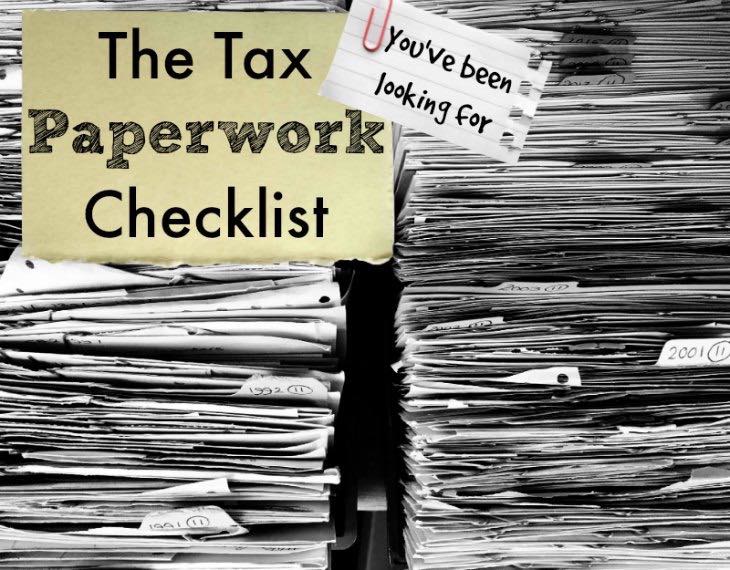These days, I’m often glad that it’s our busy tax filing season, so that I have an easy excuse when political conversations are happening: Oh THAT [crazy new political story]? Huh, didn’t see it — I’m too busy with tax season.
With all of the chaos out there, the division and shouting — from Washington to Facebook to right here in Omaha, it’s helpful to try to tune out the shouting and focus on what is actually in our sphere of productivity.
So speaking of being productive, it might be time to get moving on your tax files, if you haven’t already.
The IRS did a study a few years ago that computed that the *average* time that it takes to complete a tax return is 22 hours. And obviously, that number varies by the return, but I’m reminded (again) of the blessing that it is to free our clients’ TIME — not to mention the additional deductions we find, the stress we remove, and the security we can provide in knowing that it’s being handled right.
Already, we have many, many Omaha tax clients who have filed, have received refunds and have written us notes telling us that they’ve never been more pleased with their filing experience. And of course, this makes me happy, as you might imagine.Now, I’ve got something here that we posted towards the beginning of January, but as we are moving into the depths of March, I thought it would be worth posting once more…
Lester Nosal Tax Paperwork Checklist
“We are not retreating — we are advancing in another direction.” -Douglas MacArthur
With the increased penalties associated with the ACA in 2017, and all of the other changes every year, filing your taxes on your own is not for the faint of heart — even with nice-looking softwares on the market which purport to make it easy for you.
But that’s what we’re here for. Let us be your easy button.
Below is a list of what you will need during the tax preparation process. Not all of them will apply to you — probably MOST will not. Nonetheless, it’s a useful checklist.
Before you get overwhelmed: yes, this is a long list — but it’s the unfortunate reality of our tax code that it’s not even comprehensive! But these items will cover 95% of our Omaha tax clients. Really, this is for ensuring that we’re able to help you keep every dollar you can keep under our tax code.
Even if for some strange reason you won’t be using our cost-effective services this year, feel free to use this list as a handy guide…
Personal Data
Social Security Numbers (including spouse and children)
Child care provider tax I.D. or Social Security Number
Employment & Income Data
W-2 forms for this year
Tax refunds and unemployment compensation: Form 1099-G
Miscellaneous income including rent: Form 1099-MISC
Partnership and trust income
Pensions and annuities
Alimony received
Jury duty pay
Gambling and lottery winnings
Prizes and awards
Scholarships and fellowships
State and local income tax refunds
Unemployment compensation
Health Insurance Information
* All 1095-A Forms from marketplace providers (if you purchased insurance through a Marketplace)
* Existing plan information (policy numbers, etc.)
* If claiming an exemption, your unique Exemption Certificate Number
* Records of credits and/or advance payments received from the Premium Tax Credit (if claiming)
Homeowner/Renter Data
Residential address(es) for this year
Mortgage interest: Form 1098
Sale of your home or other real estate: Form 1099-S
Second mortgage interest paid
Real estate taxes paid
Rent paid during tax year
Moving expenses
Financial Assets
Interest income statements: Form 1099-INT & 1099-OID
Dividend income statements: Form 1099-DIV
Proceeds from broker transactions: Form 1099-B
Retirement plan distribution: Form 1099-R
Capital gains or losses
Financial Liabilities
Auto loans and leases (account numbers and car value) if vehicle used for business
Student loan interest paid
Early withdrawal penalties on CDs and other fixed time deposits
Automobiles
Personal property tax information
Department of Motor Vehicles fees
Expenses
Gifts to charity (receipts for any single donations of $250 or more)
Unreimbursed expenses related to volunteer work
Unreimbursed expenses related to your job (travel expenses, entertainment, uniforms, union dues, subscriptions)
Investment expenses
Job-hunting expenses
Education expenses (tuition and fees)
Child care expenses
Medical Savings Accounts
Adoption expenses
Alimony paid
Tax return preparation expenses and fees
Self-Employment Data
Estimated tax vouchers for the current year
Self-employment tax
Self-employment SEP plans
Self-employed health insurance
K-1s on all partnerships
Receipts or documentation for business-related expenses
Farm income
Deduction Documents
State and local income taxes
IRA, Keogh and other retirement plan contributions
Medical expenses
Casualty or theft losses
Other miscellaneous deductions
We’re here to help. Let me know if you have any questions.
Warmly,
Lester Nosal
(402) 502-2200
Nosal Professional Group, P.C. of Omaha




















